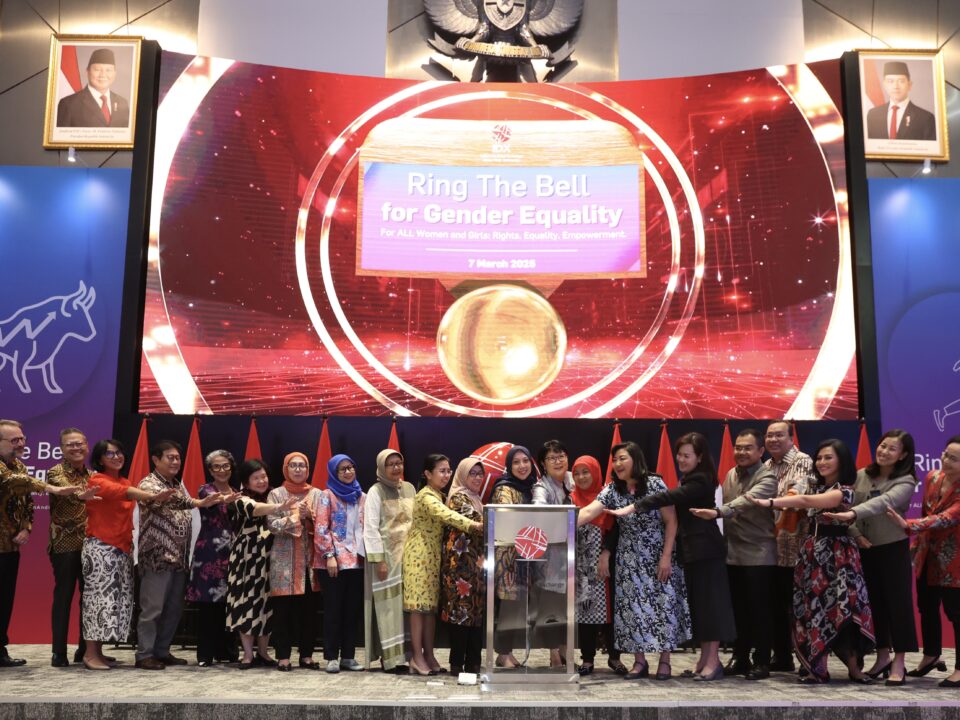
Supporting Female Employees Means Supporting the Company’s Advancement
December 24, 2023
Australia & Indonesia International Trade Scholarship
December 24, 2023Toxic masculinity is actually counter-productive to the company’s operations and must be addressed. Toxic masculinity is an assumption about male behavior that is shaped by social or society.
“Toxic masculinity is a misunderstanding about how a man should behave. For example, the assumption in society that men should not cry. Of course, this traditional perception of masculinity can encourage negative behavior in the workplace,” said Maya Juwita, Executive Director, Indonesia Business Coalition for Women Empowerment (IBCWE).
The impact of toxic masculinity is the adoption of negative behaviors in men that are harmful to women, society and the men themselves. This form of adoption of negative behavior can take the form of unwanted domination, irresponsible risk taking and hatred of women. Moreover, this negative bias behavior can be embedded in his subconscious.
FWD Insurance Indonesia’s Chief Human Resources Officer, Rudy Manik added, the challenge is that sometimes men are caught in a situation where they have to fulfill demands that must be achieved, resulting in toxic masculinity behavior. Therefore, to change the organizational culture to be more equal, it must come from the company’s leadership. “Firstly, we determine what behavior should be displayed when interacting, competing, and delivering performance targets, and it all starts from the top,” he added.
Meanwhile, Acting Deputy for Community Participation at the Ministry of Women’s Empowerment and Child Protection (Kemen PPPA), Indra Gunawan said, there are still many challenges to be faced, especially to eliminate the boundaries of socio-cultural norms that can hinder women. “We also need to learn a lot and process to understand gender issues and the needs of women to create an equal work environment,” he said.
IBCWE disseminating the results of a survey on Toxic Masculinity conducted in February 2022 to portray the role of misguided masculinity in the dynamics of gender equality in the workplace. The dissemination of the survey results was carried out in commemoration of International Women’s Day on March 11, 2022 in collaboration with the Ministry of Women’s Empowerment and Child Protection (Kemen PPPA), in collaboration with FWD Insurance Indonesia, and support from PT Bank BTPN, L’Oréal Indonesia, and the Government. Australia through the Investing in Women program.
“A survey of 10 toxic masculinities that exist in the workplace in Indonesia and most respondents agree with this misguided masculinity. This means that Indonesian society in general still has standards that are difficult for men to achieve. These unattainable standards can encourage negative work behavior or culture. For example, the culture of putting each other down, prioritizing work or never admitting their faults,” said Maya Juwita.
The findings of this survey stated that as many as 91 percent of respondents disagreed that men do not need friends to confide in, followed by 88 percent who disagreed that men do not need help from others to solve their own problems, then men should be more dominant than women in all respects as much as 80%, and men do not need to take care of the household and take care of children as much as 95% of respondents who disagreed. This refutes the social assumption that domestic tasks are only done by women.
In addition, the statement of agreement by respondents recorded that 81 percent stated that men must be physically and mentally strong, then 62 percent stated that men are more appropriate to do heavy or physical work, and 71 percent stated that men are considered to always be able to make decisions on their work.
IBCWE conducted this rapid survey on 896 people during February 2022. The respondents were divided into 532 women (59.4%), 362 men (40.4%), and 2 people who did not mention their gender (0.2%). Most of the respondents were aged 25-34 years, as many as 311 and consisted of 123 men (34%), 187 women (35%), and the rest did not mention their age.
Lelaki Turut Serta (Male Fellow)
For diversity and inclusion in the workplace to be achieved, the involvement and support of all genders is essential, including men. Data from Global research from the Boston Consulting Group shows that when men are directly involved in gender diversity, both men and women believe that their companies are making far greater progress towards achieving gender equality. Data shows that of companies where men are actively involved in gender inclusion programs, 96 percent report progress – compared to 30 percent of companies where men are not involved. However, companies tend to focus only on changing women rather than solving the systemic structures that lead to male privilege and enforce male behavior.
Therefore, IBCWE with the support of the Kemen PPPA launched the Lelaki Turut Serta Campaign which was attended by male representatives from IBCWE member companies. This campaign focuses on four main things to demonstrate its involvement in gender equality and women’s empowerment, namely; commitment, competency development related to gender equality in the workplace, networking, and advocacy.
14 March 2022
Fellicca P. Madiadipura





